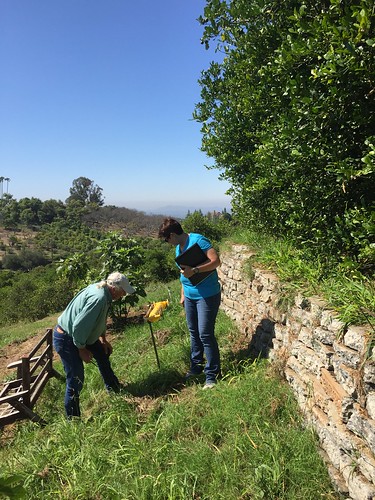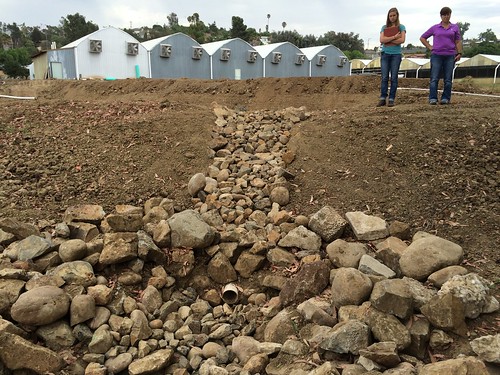
USDA’s Natural Resources Conservation Service is celebrating National Volunteer Week April 10-16, 2016, by thanking and honoring its Earth Team volunteers for their service to conservation.
After service in the U.S. Navy, that included deployment to Kuwait and Afghanistan, Commander Theresa Everest knew farming was her next step.
Two traumatic brain injuries ended her career with the Navy and lead her to Operation Warfighter―a Department of Defense internship program that matches qualified wounded, ill and injured service members with federal agencies to gain valuable work experience during their recovery and rehabilitation. Everest became an Earth Team volunteer with USDA’s Natural Resources Conservation Service (NRCS).
Although Everest had no prior agricultural experience, her 23 years of health and wellness education experience with the Navy inspired her to improve consumer wellness in her community through organic food production. Organic farming systems rely on preventative practices to control weeds, insects and disease and uses natural methods to manage problems if they arise. Organic methods also help improve soil and water quality.
These goals are all areas where NRCS’ science-based conservation methods can help. Through the Environmental Quality Incentives Program, NRCS offers organic conservation assistance to help farmers improve soil health and conserve and protect water.
“Volunteers work closely with our staff and they play an important role in our conservation work,” said NRCS District Conservationist Cori Calvert.
While Calvert shared her experience in agricultural matters with organic farmers, Commander Everest discussed growing methods and other challenges based on her own experience and expertise―valuable information when beginning an organic farming operation. But, Everest’s experience reached beyond the day-to-day technical assistance for local farmers.
Everest also went above and beyond to prepare for the work, voluntarily attending the Fire Safe Councils seminars on forest health, fire fuel reduction and forestry conservation practices; conducting a survey of the equestrian community to help outreach activities more effectively target participants; and completing a flood erosion survey examining flood, runoff, and erosion resource concerns.
The Earth Team is NRCS’ volunteer workforce that is making a difference in every county in the nation. NRCS works with private landowners to improve soil quality, conserve water, improve air quality and enhance wildlife habitat. Earth Team volunteers work side-by-side with conservation professionals and are an integral part of the conservation partnership.
As an Earth Team volunteer in Escondido, California, she assisted NRCS with its mission: helping farmers help the land.
Last year, more than 23,800 people donated 294,306 hours of service to NRCS, valued at over $6.8 million. Commander Everest was recognized for her extraordinary dedication and volunteer contributions with NRCS’ 2016 National Earth Team Individual Volunteer Service Award.
These volunteers allow NRCS to stretch available resources to help fares and ranches across the country implement additional conservation practices. Volunteers gain valuable work experience and Commander Everest is now pursuing her dream of organic farming in Oregon.

